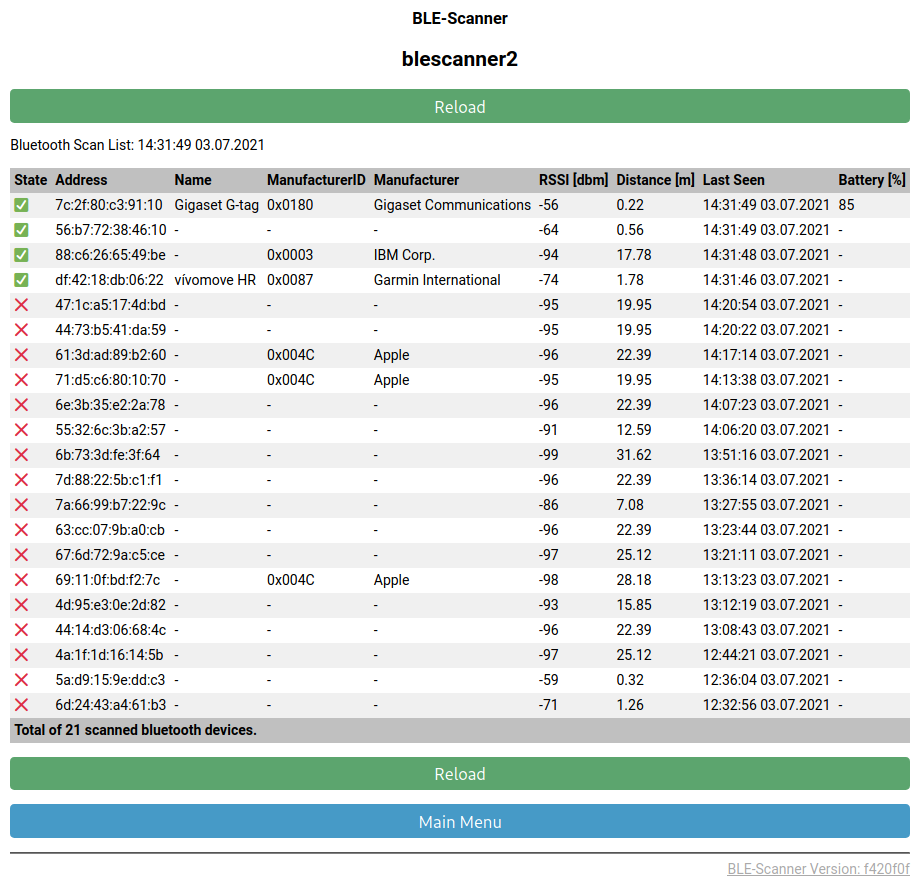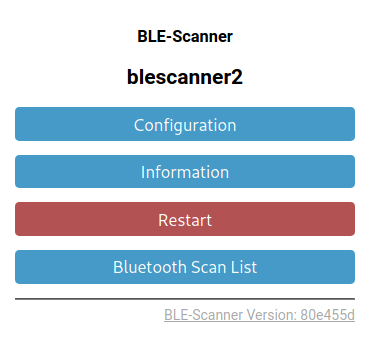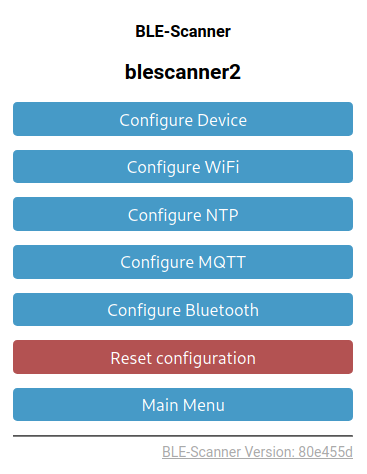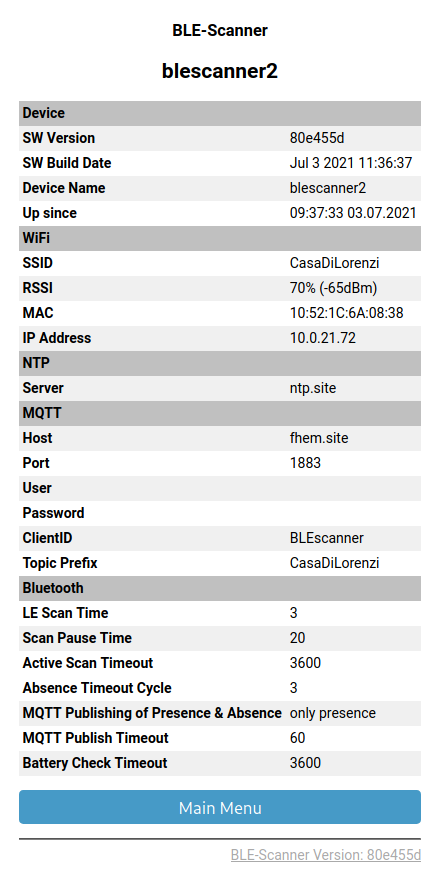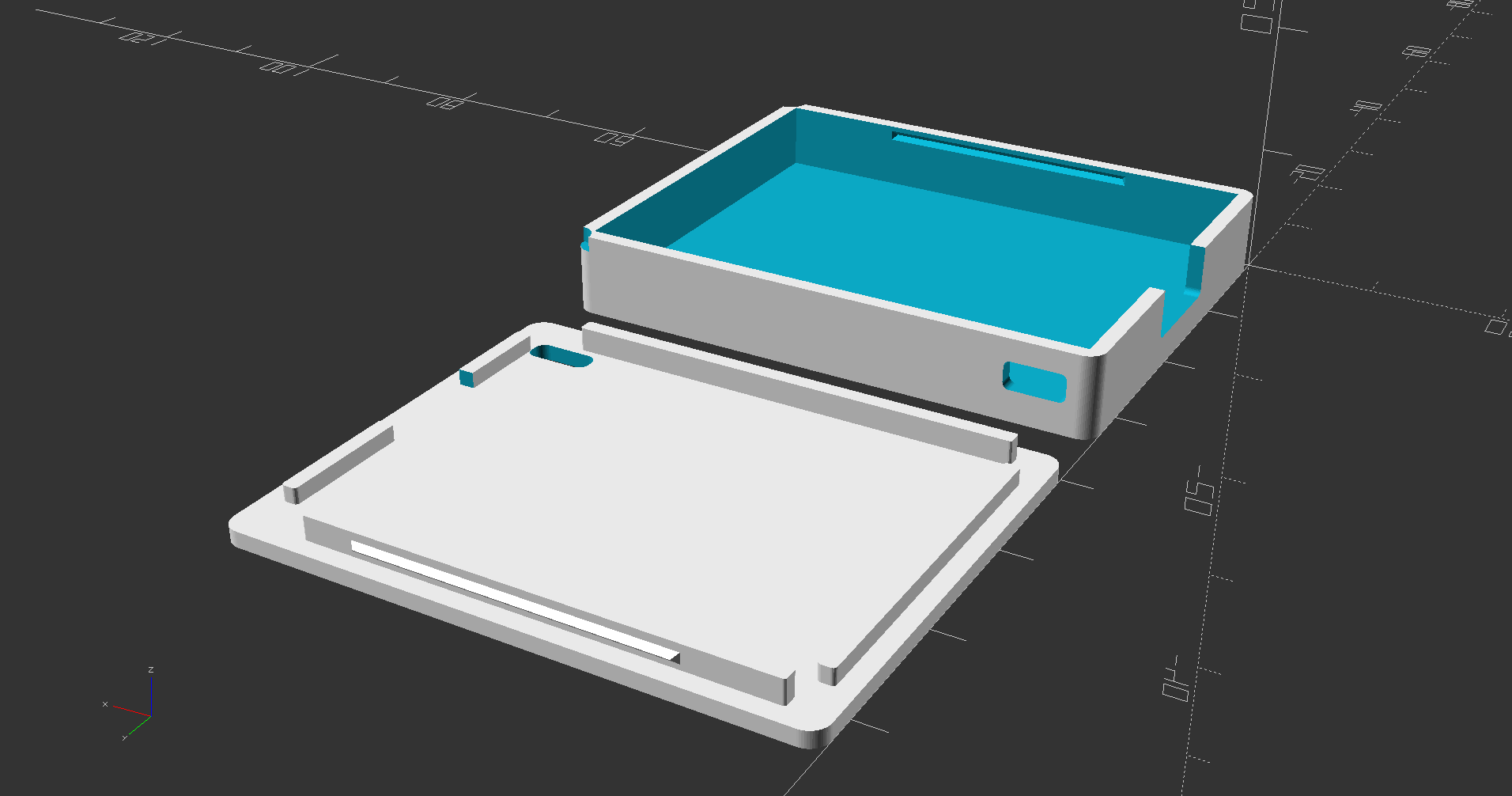ESP32-based Bluetooth Low Energy (BLE) scanner to report presence of bluetooth devices into an MQTT service.
Nowadays more and more bluetooth devices are around for personal use, like smart phones or smart watches. Why not use these devices to check presence of tenants at home?
There are already some solutions around. So why add another one?
I was quite astonished how many devices are detected if you scan the air for bluetooth. Only a few of these report their name, so its hard to distinguish these. The Bluetooth list of manufacturers helps here.
I used an Espressif ESP32 device which has WiFi and Bluetooth on-board (e.g. the Mini D1). The bluetooth scan results are published to an MQTT server via WiFi.
The BLE scanning device is configured via a Web Frontend which is inspired by Tasmota.
The BLE-Scanner doesn't need any external circuit -- just flash the software on it and configure the device.
To intall the ESP32 device support in the Arduino IDE, do as follows:
- Open the preferences in the Arduino IDE and add the following URLs to the Additional Boards Manager URLs
- Open the Boards Manager and search for
esp32. Install the found library. - Under
Tools- select the Board
ESP32 Arduinoand your matching variant which wasWEMOS D1 MINI ESP32in my case. This depends on the board you use. - select the hightest
Upload Speed - select the right
CPU Frequencyfor your board - select the
Flash Frequencyof80MHz - select the
Partition SchemeofMinimal SPIFFS (Large APPS with OTA)
- select the Board
- Under
Tools-Manage Librariesinstall the following libraries, if not yet installed:NimBLE-Arduino- see https://github.com/h2zero/NimBLE-Arduino for documentationPubSubClient- see https://pubsubclient.knolleary.net/ for documentationTimesee https://playground.arduino.cc/Code/Time/ for documentation
Once you have the ESP32 device flashed with the BLE-Scanner, and maybe distributed a few of these devices in your infrastructure, you can use the Firemware Upgrade procedure where a new build SW version can by flashed over the air (OTA). Select Export compiled Binary under the 'Sketch' menu and upload the resulting file in the sketchs home in the BLE-Scanner.
Whenever the BLE-Scanner starts and is not able to connect to your WiFi (eg. because of a missing configuration due to a fresh installation), it enters the configuration mode.
In configuration mode the BLE-Scanner opens an WiFi Access Point with the SSID BLE-Scanner-AP-XX:XX:XX. Connect to it with your smartphone or notebook and configure at lease the WiFi settings. Than restart the BLE-Scanner, and continue the configuration.
To flash, open the sketch, build and upload to a connected ESP32. Then follow the Initialization Procedure above.
This is the sketch for the ESP32 micro controller. Use the ArduinoIDE to compile and upload into the ESP32 micro controller.
Follow the section Prepare the build environtment above, then open the sketch in the Arduino IDE to build and upload to a connected ESP32. Then follow the Initialization Procedure above.
In this directory you will find a 3D model of an enclosure for the device. These models are designed with OpenSCAD. Use the latest version of OpenSCAD (nightly build). The lower and upper shells of the enclosure are simply snapped together -- without any screws.
Thie directory holds the helper script to download and activate the bluetooth manufacturer list.
Thie directory holds some screenshots of the web interface.
